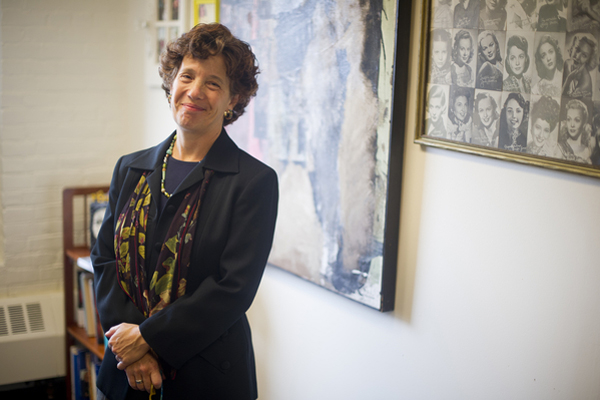3Qs: Women’s rights in the Middle East

Last month, Malala Yousafzai, a 15-year-old education activist from Pakistan, was shot in the head by a member of the Taliban for espousing her belief in a girl’s right to go to school. Her prognosis is good, and she is recovering with family in England. Approximately one week after the attack on Yousafzai, the violent killing of a teenage girl in western Afghanistan highlighted a recent spate of attacks against Afghan women. Here, Suzanna Walters, a professor of sociology and the director of the Women’s, Gender and Sexuality Studies Program in the College of Social Sciences and Humanities, explains why violence against women and gender inequality won’t soon be a problem of the past.
What is the safest way for women in the Middle East to advocate for their rights in education, voting and employment?
The particular strategy in each individual country must be determined by those local actors themselves; substantive change can never be simply “imposed” from the outside, even from well-intentioned feminists from abroad. That said, it seems vital for feminist activists to develop autonomous groups that both put pressure on the state for redress and develop local institutions and “nonstate” civil society pathways for social change.
Fundamentalisms almost always instantiate gendered distinctions that disempower women, from control over their own reproduction — and their own children — to basic legal rights and civil liberties, such as voting, driving, public access and workplace equity. The bottom line is that deep equality for women — and the feminist project more generally — is never a safe endeavor: Male power, both here and abroad, Muslim or Christian or Jewish, will never give ground voluntarily.
What role should U.S. political figures play in bringing gender equality to the region?
For most politicians, the goal of gender equality, whether here or abroad, is clearly not a serious one. We saw that in the Bush administration’s cynical use of women’s rights in Afghanistan as a justification for war, even in the face of the Republican Party’s anti-woman policies at home and, indeed, around the world. If women’s bodies and women’s lives really mattered, we would in fact be involved in wars around the world: The international statistics on women as victims of sexual violence and domestic battery and the shrug with which our world leaders greet this news should indicate that we have come to view this “war on women” as simply business as usual.
Imagine how different our foreign policy — and foreign aid — might look if we took as our starting goal the elimination of gender inequity and gender-based violence. We put sanctions on countries that pursue weapons we want to keep for ourselves but happily do brisk trade with those who won’t “allow” women to vote or drive. Who would be our allies if gender equity mattered? How would monies get disbursed? What wars would or wouldn’t be fought?
Women’s rights advocates from Pakistan recently toured stateside domestic violence programs in an effort to understand how the U.S. — where approximately 1.3 million women are physically assaulted by an intimate partner each year — combats gender-based abuse. What do you think they could learn from the U.S. model for addressing abuse?
I do think the domestic violence shelter movement has been an incredible resource for many women. All could learn from that, and from the pressure the U.S. feminist movement has — sometimes quite effectively — put on the legal system to not “revictimize” female victims of sexual assault. But I think one thing they could learn is how building institutional places of respite and care needs to be joined with a vibrant and powerful feminist movement that places gender-based violence in a broader context of male-dominant and heterosexist practices and ideologies. That’s what’s missing now in the U.S. context and what is so often missing around the world; we should not confuse the “reactive” practices of combating male violence with the “proactive” construction of feminist alternatives.





